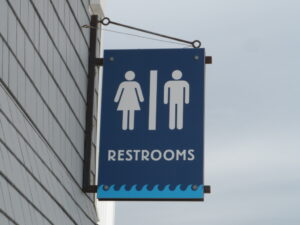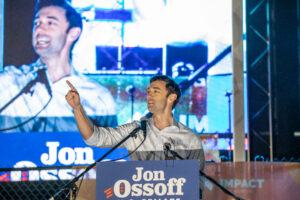As of June 10th of this year, the U.S. Government's promise of imposing a 5% tariff on all Mexican Imports was, thankfully, cancelled, despite Donald Trump's best efforts. Tariffs are a tax, or duty, to be paid on a particular class of imports or exports. This kind of taxation hinders the global trade market, and ultimately hurts domestic business. According to a slew of tweets published by the president on May 30th showcased in this CNBC article, these tariffs were intended to punish Mexico for their role in the illegal immigration crisis. One may ask what value there is in further discussion of these failed policies; this near-economic-disaster represents Trump's craving for an isolationist America, and his inability to recognize the archaic nature of that vision. These blunders within his presidency must be inspected, particularly with the upcoming 2020 election.
Let's understand the magnitude of this proposed policy. The percentage tax rate on Mexican imports was set to increase overtime, halting at a whopping 25% on October the first of this year. It would remain at this incredibly high margin until Mexico decreased the flow of illegal immigrants into the States. This threat ignored the fact that majority of illegal immigrants within this country are not asylum seekers, but, rather, people within the states that have overstayed their visas. In fact, the latter type of illegal immigrants outnumber asylum seekers by a ratio of 2 to 1 according to this article. But, even if the nativist perception of foreigners flooding our borders were true, tariffs have, historically, proven to be harmful to the United States, rather than being an effective tool in commercial retaliation.
America's largest imports from Mexico are cars and auto parts, according to this Vox article, this means that American automobile producers would have had to pay inflated prices for their various parts and equipment if this tariff had gone into effect. In a globalized market, countries receive imports from a vast variety of other countries, making the induction of tariffs a very strange and backwards move.
I mentioned earlier that tariffs have historically resulted in American turmoil. Take for example, the Smoot-Hawley Tariff Act of 1930. This act raised import duties in hopes of protecting American business, but ultimately put greater economic strain on the United States during the Great Depression. The death of tariffs as a major financial benefit to the federal government occurred in the early 20th century, with the introduction of income tax. So, there is simply no place for import tax in modern America; however, let's look at how tariffs benefited early America.
The Era of Good Feelings describes an approximately ten-year window of time following the end of the war of 1812. This was the prime era of isolationism; it was all about focusing on post-war America, particularly amidst the establishment of the Second National Bank. The mantra of "Make America Great Again" should now be ringing in your brain, because it is this era in history that Trump, and many other Americans, desire to emulate.
But the issue is that the world has changed. America annexed the Philippines and Puerto Rico, the latter of which America still has control of to this day. This country has irreparably dipped its toes into global imperialism, and there is simply no way to return to that era two hundred years in the past. The unattainability of such isolationism should be apparent in Donald Trump's confused policies; attempting to impose tariffs that would ultimately hurt domestic industry, and therefore conflict with his "America First" ideals. When contemplating future presidential candidates, I would hope that voters select someone who plans accordingly for the future, rather than chasing an unattainable past.
Advisor’s note:
This essay is marked as ‘opinion’ and that categorization should be understood to mean that this piece is the opinion of the author who wrote it and does not reflect the opinion of the Unleashed staff or Bedford student body as a whole.
However, given the charged nature of mixing politics and education, it is important that Unleashed reiterate that it is open to all students and therefore all student opinions (so long as they are informed, measured, and do not incite violence or hatred towards others).
Should you wish the Unleashed opinion pages to contain essays that reflect your political or social beliefs, and you believe you have the ability to write about them in an informed and professional style, you are welcome to submit your work to the opinion editor for consideration.





